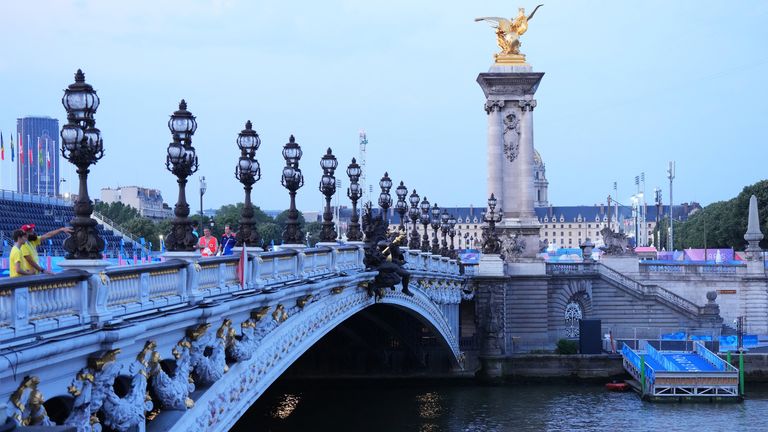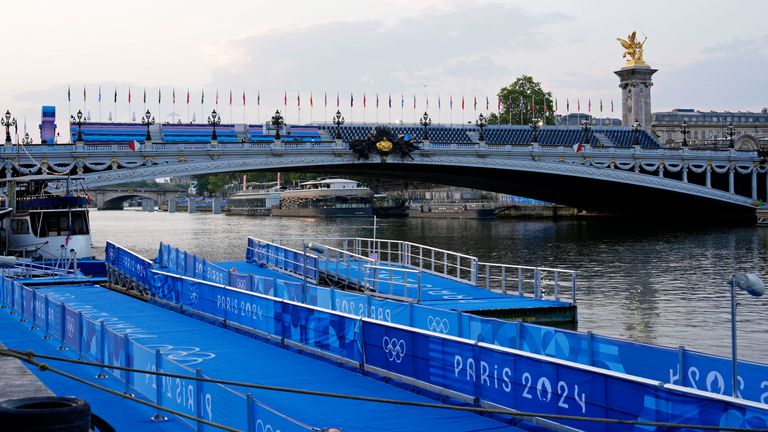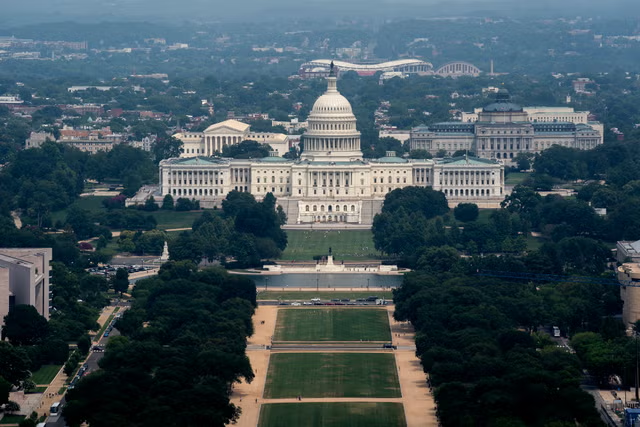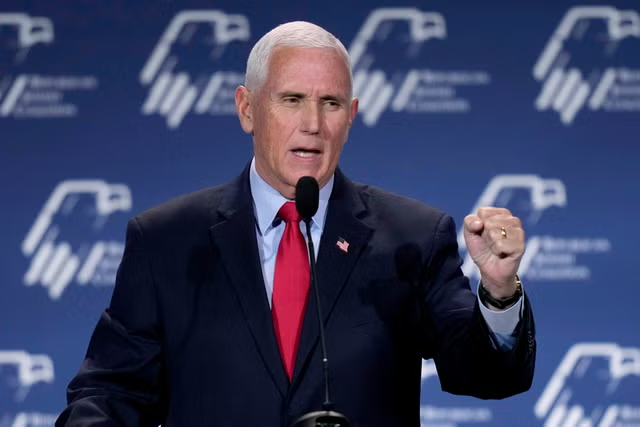When it requires daily checks to see if water can just about meet safety threshold – why take the risk at all?
Promoting Paris seemed the priority when selecting the location for Olympic triathlons swimming events, events that might now have to be cut completely.
All that money poured into trying to clean up the River Seine - more than £1bn - and still they could not prepare for rain deluging Paris at the worst time and increasing the E.coli bacteria in the polluted water.
"We are not God, we are not controlling the weather," World Triathlon president Marisol Casado told Sky News, having blamed climate change for the storms since Friday's opening ceremony drenching the French capital.
Read more: Why the Seine is too polluted
Sewage and stormwater can flow through the same pipes if they are overwhelmed by rain that organisers did not see coming in the weeks before the Olympics.
So they are left sweating on the water quality readings from constant testing as storms returned to Paris tonight.

Too dirty and dangerous were the results for the previous two days, preventing any swimming training sessions ahead of the triathlon.
Despite that, organisers still went to bed on Monday night trying to stage the triathlon the next morning.
The crucial round of tests on the water were conducted at 3.30am and, once the results were in, athletes were given less than three hours' notice that the men's triathlon had been postponed.
"The tests show it is unhealthy for people to swim in," Ms Casado reported back.
"We are taking care of that. We are not going to let them swim unless the water is good quality."

Further down the river from the Pont Alexandre III Bridge start and finish line, at the offices of water analysts Fluidion, we found water intelligence experts testing the latest batch from the Seine as part of constant monitoring.
In the laboratory, samples from three different spots on the river were there, ready for rapid tests.
Fluidion chief executive Dan Angelescu showed us two samples being incubated.
"They develop optical signals that allow us to obtain a signal curve," he explained to Sky News. "And by analysing the signal curve, we can actually determine after how long the fluorescence appears in the samples. And this is what's related to the number of bacteria in there.

"By looking at the sample over time and collecting plenty of data on multiple optical channels, we can determine the number of bacteria that were there initially when we started the measurement."
Far from a Paris-only problem
The quality of open waters for sports is far from a unique problem for Paris.
Rowers in the Oxford-Cambridge boat race in April this year complained about pollution in the River Thames and sickness was blamed on an outbreak of E.coli.
But there have been concerns about the Seine's water safety, with swimming banned in 1923 - a year before the Olympics were last staged in Paris.
"What is dangerous is that when you have sewage that overflows into the river, you'll get all the pathogens that are associated with it," Mr Angelescu said.
"So it's not the bacteria we measure that are necessarily dangerous, but it is all the pathogens that are coming with it.
"And those could be viruses, other types of bacteria, they could be protozoa, etc.
"So this is where the danger comes from. And what we measure is a way to quantify the risk by looking at E. coli, which is one of the bacteria that you find in the human digestive tract. But the danger comes from pretty much everything else that's out there associated with it."
Paris tried to clean up the contaminated water to provide a triathlon venue giving landmarks and monuments even greater prominence in the coverage.
But was scenery prioritised over safety considerations in trying to secure a route?
Keep up with all the latest news from the UK and around the world by following Sky News
Tap here"This is very important specifically for our athletes - it's very important just to showcase," Ms Casado said. "It is very important because for me ours are the best athletes in the village, let's say. And they require a wonderful space."
Today, the Seine was too risky to swim in. Will it be any safer tomorrow?
The triathletes are left waiting - not knowing how and if there will still be a triathlon or just the contingency plan of downgrading to a duathlon with the swimming section scrapped completely.
Disclaimer: The copyright of this article belongs to the original author. Reposting this article is solely for the purpose of information dissemination and does not constitute any investment advice. If there is any infringement, please contact us immediately. We will make corrections or deletions as necessary. Thank you.



